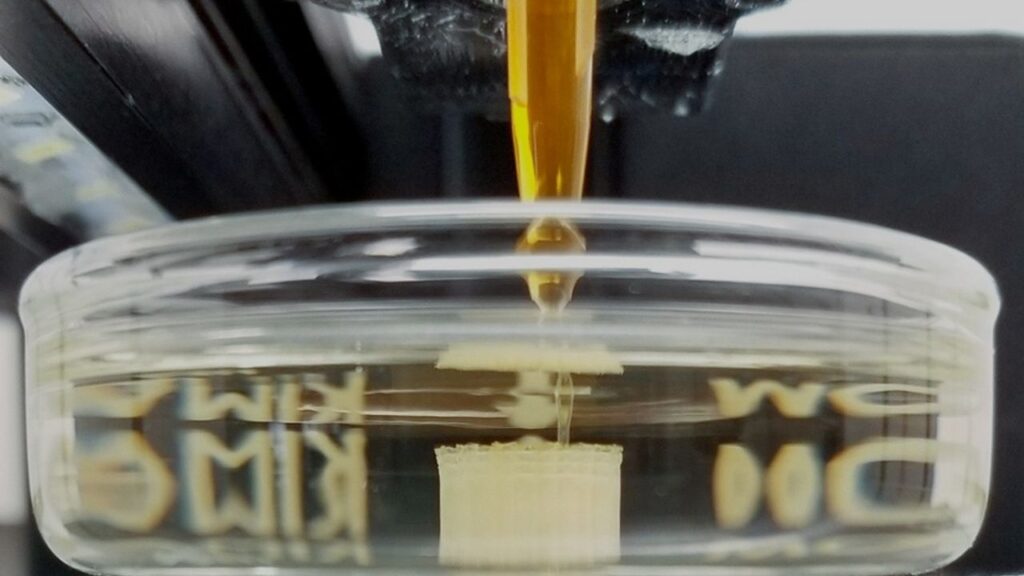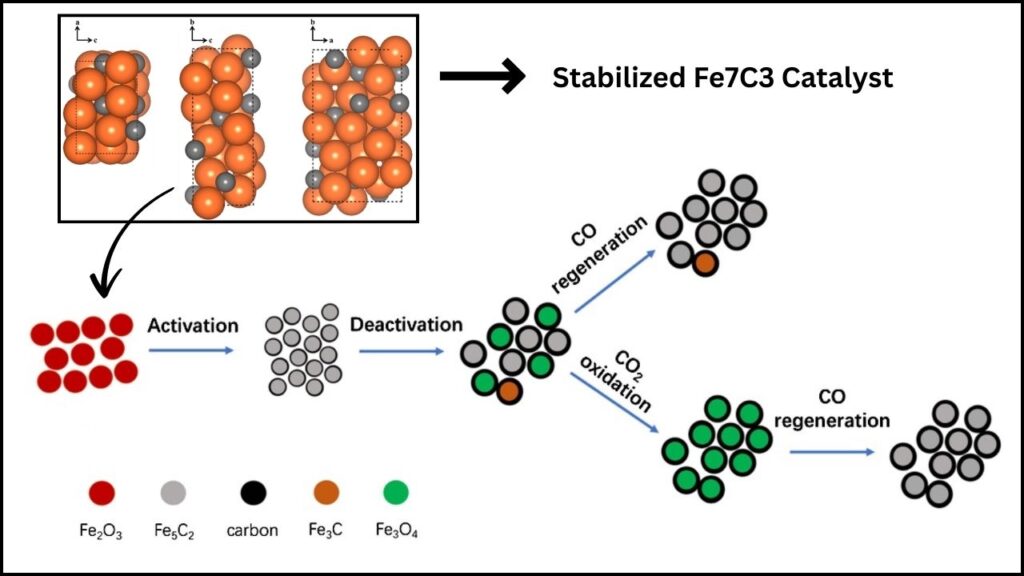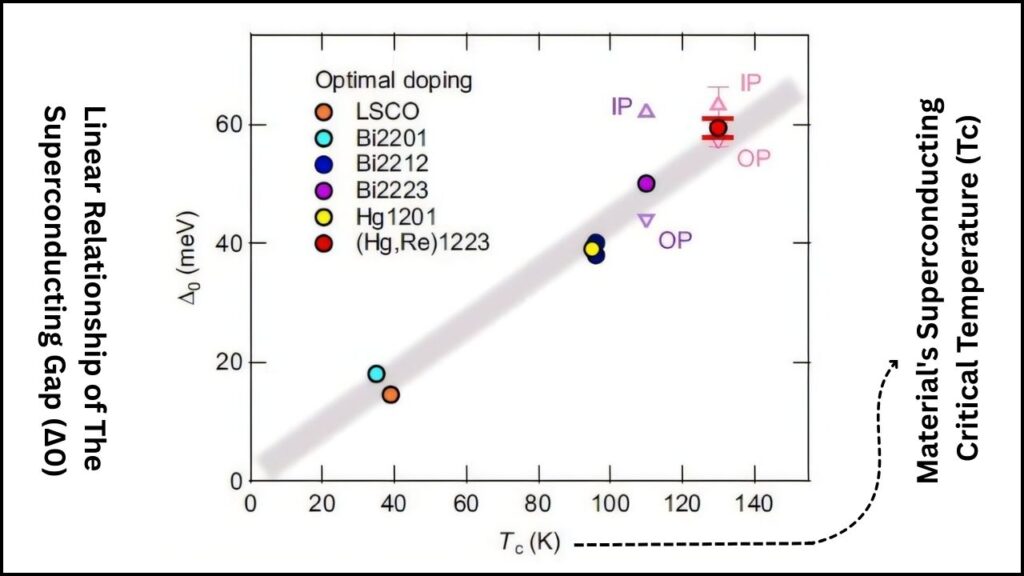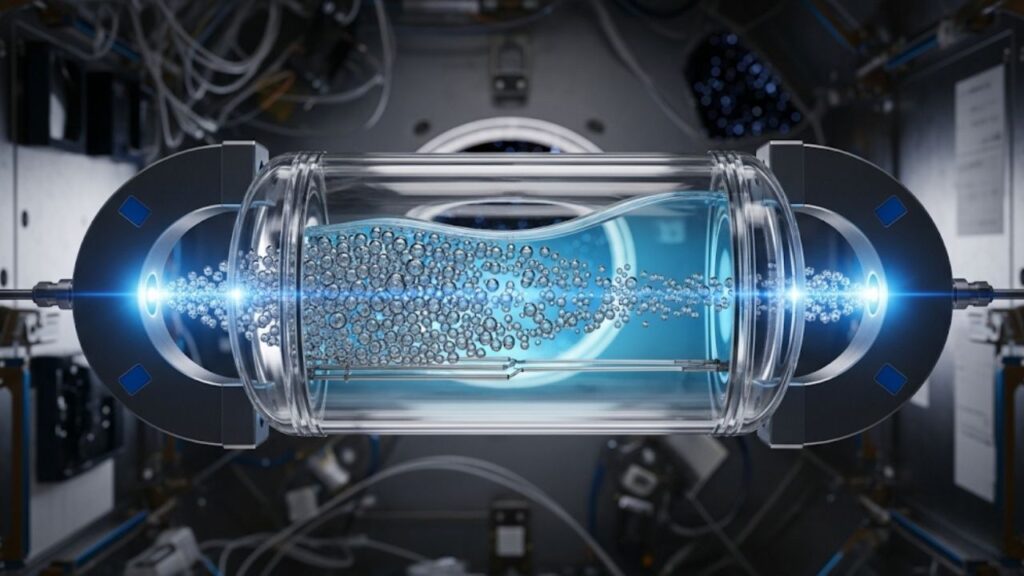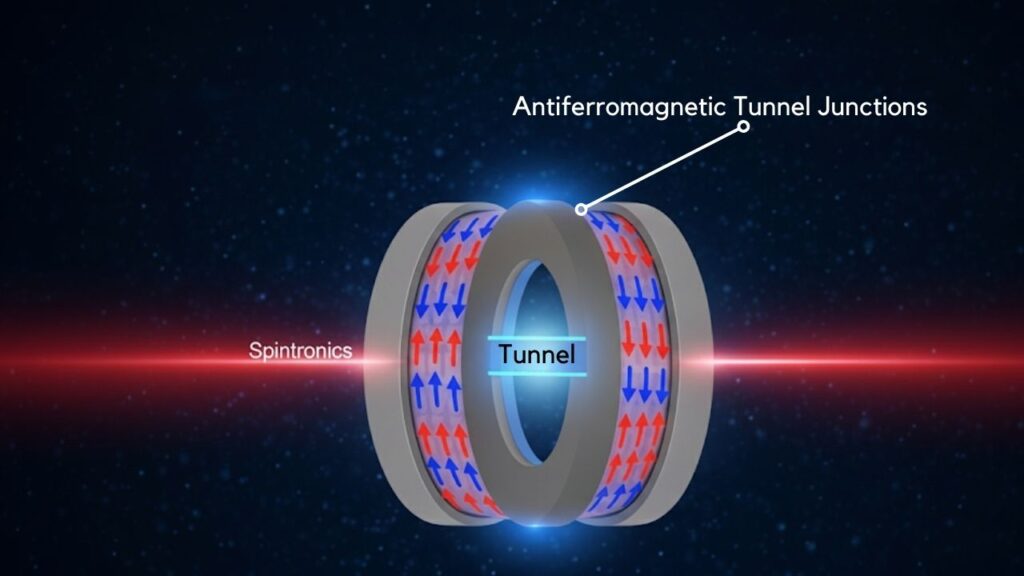Quantum-enhanced supercomputers are now solving real chemistry problems—a statement that marks a turning point in both scientific research and industrial innovation. This breakthrough is not just for academics or tech giants; it is reshaping how we approach everything from drug discovery to clean energy. Whether you’re a student, a professional, or simply curious about the future, understanding this revolution will help you see how quantum computing is poised to change the world.

Table of Contents
Quantum-Enhanced Supercomputers Are Now Solving Real Chemistry Problems
| Feature/Topic | Details & Data | Career/Professional Impact |
|---|---|---|
| Quantum Chemistry Definition | Uses quantum mechanics to simulate molecules and chemical reactions | Essential for R&D in pharma, materials, energy |
| Quantum Computing Role | Handles complex calculations classical computers can’t; simulates molecular behavior at atomic level | Enables faster, more accurate innovation |
| Key Algorithms | Phase Estimation Algorithm (PEA), Variational Quantum Eigensolver (VQE) | New career paths in quantum software & AI |
| Industry Applications | Drug discovery, catalyst design, materials science, chemical process optimization | High demand for quantum chemists, engineers |
| Current Limitations | Quantum computers still in early stages; need more qubits for large-scale problems | Upskilling needed for future workforce |
| 2025 Milestone | IBM to release largest quantum computer; UN declares 2025 International Year of Quantum Science | Global collaboration, new funding opportunities |
Quantum-enhanced supercomputers are no longer just a futuristic concept—they are already solving real chemistry problems and transforming the way we approach scientific discovery. By combining the strengths of quantum and classical computing, researchers are making breakthroughs that were once thought impossible. This revolution is creating new opportunities for students, professionals, and industries, and is set to address some of the world’s most pressing challenges in health, energy, and sustainability.
What Is Quantum Chemistry and Why Is It Important?
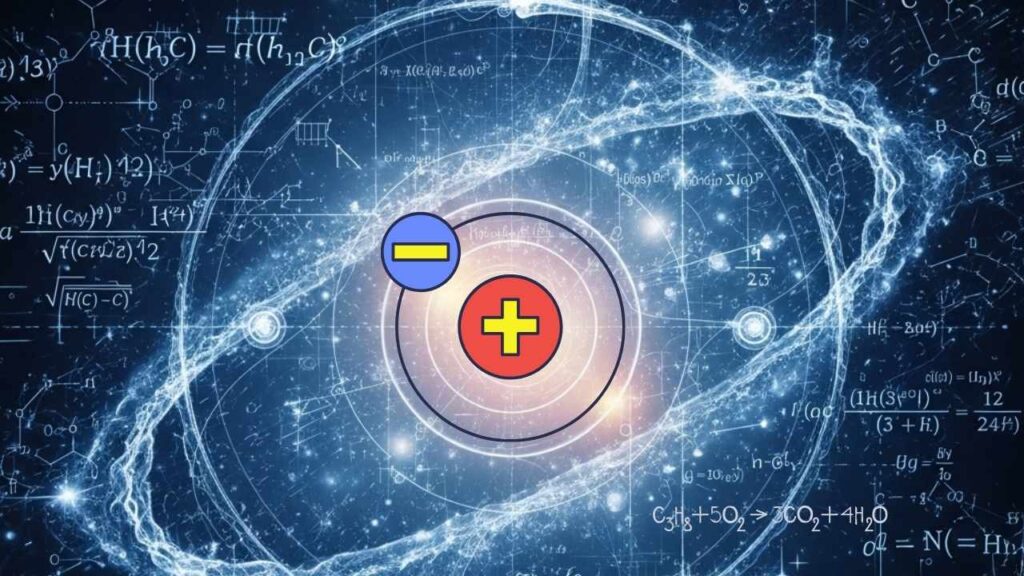
Quantum chemistry is the branch of science that uses the principles of quantum mechanics to understand and predict the behavior of atoms and molecules. This field is crucial for designing new drugs, developing advanced materials, and even understanding fundamental biological processes. Traditional chemistry relies on experiments and classical computers to model molecular interactions, but as molecules grow larger and more complex, these methods quickly reach their limits.
Quantum chemistry helps us answer questions like:
- How does a drug molecule interact with a protein in the human body?
- What are the properties of a new material before it’s even created?
- How can we make chemical reactions more efficient and environmentally friendly?
The answers to these questions have the potential to save lives, reduce costs, and drive innovation across industries.
How Quantum-Enhanced Supercomputers Work
The Basics of Quantum Computing
Traditional computers use bits, which are like tiny switches that can be either on or off—represented as 1 or 0. Quantum computers, on the other hand, use qubits. Thanks to the principles of quantum mechanics, qubits can be in a state of 1, 0, or both at the same time—a phenomenon called superposition. This allows quantum computers to process a massive number of possibilities at once.
Another key feature is entanglement, where two or more qubits become linked so that the state of one instantly influences the state of another, even if they are far apart. These properties make quantum computers uniquely powerful for solving problems with many variables, such as simulating the behavior of complex molecules.
Hybrid Quantum-Classical Systems
While quantum computers are incredibly powerful, they are not yet ready to replace classical supercomputers for all tasks. Instead, today’s most advanced systems use a hybrid approach. In these systems, quantum processors tackle the most challenging parts of a problem, such as calculating the energy levels of molecules, while classical computers handle tasks like data management and optimization.
This hybrid method allows researchers to solve chemistry problems that were previously impossible, such as simulating molecules in realistic environments or modeling reactions that involve many particles.
The Algorithms Powering Quantum Chemistry
Phase Estimation Algorithm (PEA)
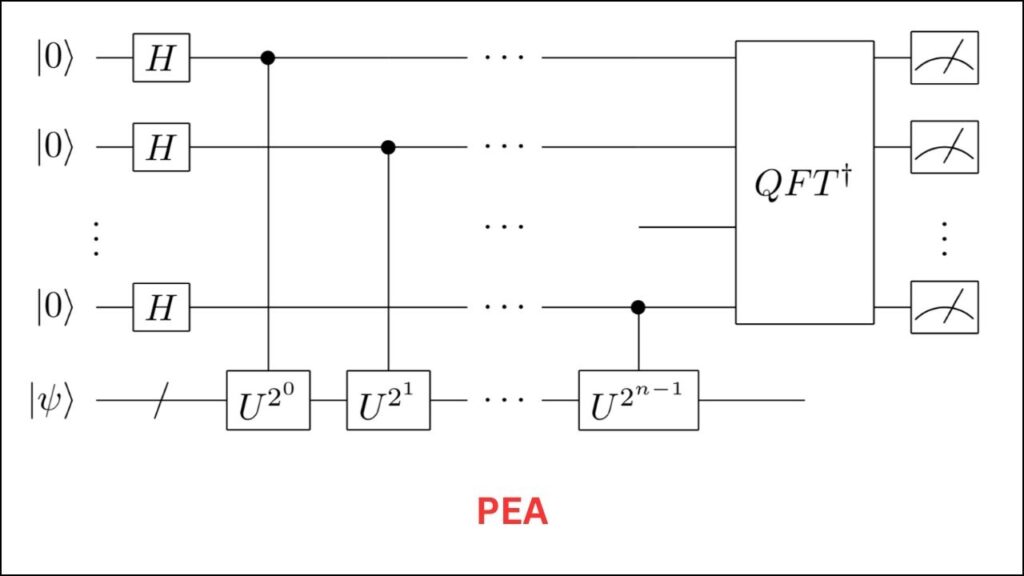
The Phase Estimation Algorithm is a foundational quantum algorithm used to determine the energy levels of molecules. Knowing these energy levels is critical for predicting how a molecule will react, what its physical properties are, and how it might function as a drug or material. PEA is especially valuable for studying systems where classical methods struggle due to the sheer number of variables involved.
Variational Quantum Eigensolver (VQE)
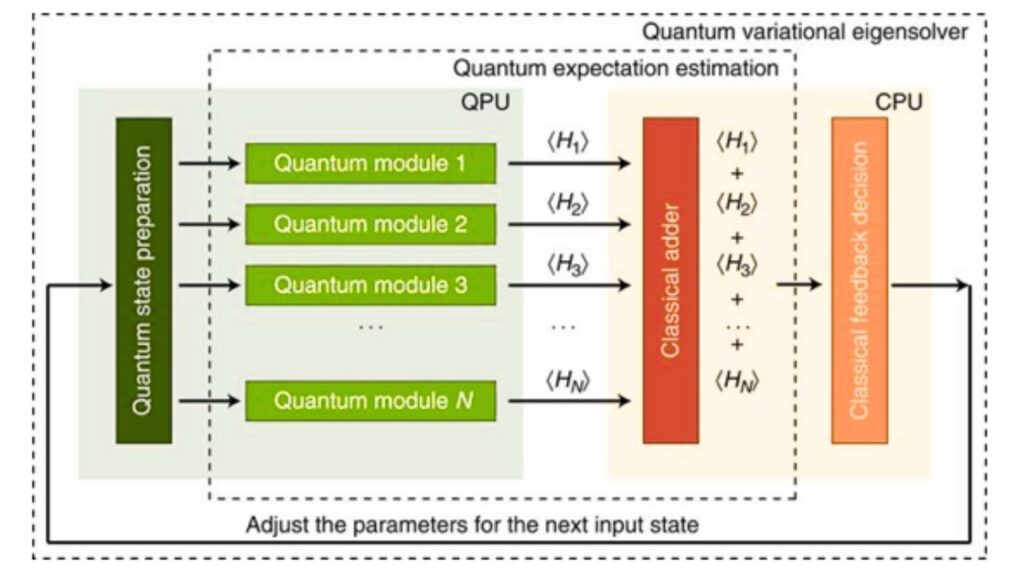
The Variational Quantum Eigensolver is another key algorithm that combines the strengths of quantum and classical computing. In VQE, the quantum computer generates possible solutions, and the classical computer evaluates and refines them. This iterative process allows scientists to find the lowest energy state of a molecule, which is essential for understanding its stability and reactivity.
Sample-Based Quantum Diagonalization (SQD)
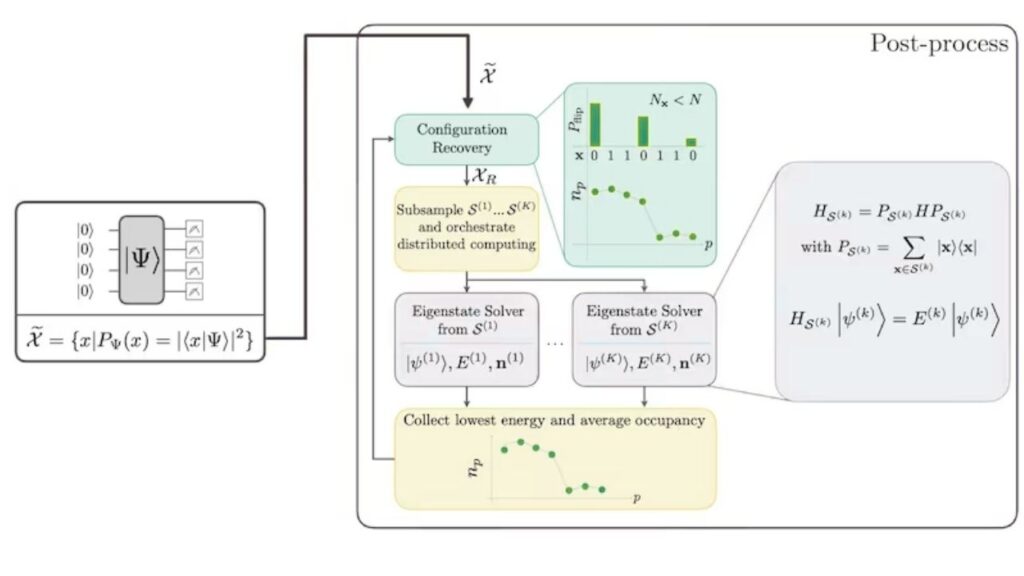
Recent research has introduced algorithms like Sample-Based Quantum Diagonalization, which further improve the efficiency of quantum simulations. These algorithms can now include important environmental factors, such as solvation effects, making simulations more realistic and applicable to real-world chemistry.
Real-World Applications: Transforming Industries
Drug Discovery
Developing a new drug is a complex and expensive process that often takes years and costs billions of dollars. Quantum-enhanced supercomputers can simulate how potential drug molecules interact with biological targets, such as proteins or enzymes, at an atomic level. This allows researchers to quickly identify promising candidates and eliminate ineffective ones early in the process, saving both time and resources.
For example, pharmaceutical companies are already using quantum simulations to model how antiviral drugs bind to viral proteins, accelerating the development of treatments for diseases like COVID-19 and cancer.
Catalyst Design
Catalysts are substances that speed up chemical reactions without being consumed in the process. They are essential in industries ranging from energy to manufacturing. Designing new, more efficient catalysts can lead to cleaner energy production and more sustainable industrial processes. Quantum computers can model the behavior of catalysts at the atomic level, helping scientists understand how they work and how to improve them.
Materials Science
The development of new materials underpins advances in technology, from faster computers to better batteries and solar panels. Quantum chemistry simulations allow researchers to predict the properties of materials before they are synthesized, guiding experimental work and reducing costly trial-and-error.
For instance, quantum simulations are helping scientists design new materials for batteries that can store more energy and last longer, which is critical for the future of electric vehicles and renewable energy.
Chemical Process Optimization
Many industries rely on complex chemical processes that must be carefully controlled to maximize efficiency and minimize waste. Quantum simulations can help optimize these processes by providing detailed insights into reaction mechanisms, energy requirements, and potential side reactions. This leads to safer, more cost-effective, and environmentally friendly manufacturing.
The State of Quantum Computing in 2025
Quantum computing is advancing rapidly. In 2025, IBM is set to release the world’s largest quantum computer, a milestone that will further accelerate research and industrial adoption. The United Nations has also declared 2025 the International Year of Quantum Science and Technology, reflecting the growing global importance of this field.
While current quantum computers are still limited by the number of qubits and the presence of errors, each year brings significant improvements. Leading research teams are now able to simulate molecules with dozens of atoms, a task that would have been unimaginable just a decade ago. As hardware and algorithms continue to improve, the gap between quantum and classical computing is narrowing, and experts predict that true quantum advantage for chemistry problems is on the horizon.
Challenges and Limitations
Despite the excitement, there are still challenges to overcome. Quantum computers are sensitive to noise and errors, which can affect the accuracy of simulations. Building stable quantum hardware with enough qubits to handle large, real-world chemistry problems remains a significant engineering challenge.
Another limitation is the need for specialized knowledge. Quantum chemistry requires expertise in both quantum physics and chemistry, as well as advanced programming skills. As the field grows, there is a pressing need for educational programs and training to prepare the next generation of scientists and engineers.
Getting Involved: Careers and Learning Opportunities
Who Should Care?
- Students: Quantum chemistry is a rapidly growing field that offers exciting career opportunities. If you enjoy problem-solving and have an interest in math, physics, or chemistry, this is a field worth exploring.
- Professionals: Chemists, engineers, and computer scientists are increasingly collaborating on quantum projects. Upskilling in quantum computing can open doors to new roles in research, development, and industry.
- Industry Leaders: Companies in pharmaceuticals, energy, and materials science are investing in quantum research to gain a competitive edge. Understanding quantum chemistry can help organizations innovate faster and more effectively.
How to Learn More
- Attend major conferences and workshops to network with experts and learn about the latest breakthroughs.
- Explore online courses and degree programs that cover quantum computing, chemistry, and related fields.
- Participate in events and initiatives organized as part of the International Year of Quantum Science and Technology to connect with the global quantum community.
Frontier Supercomputer Runs 5 Million Simulations to Unlock Stronger, Lighter Carbon Fiber
Funding Restored For Scottish Supercomputer In Edinburgh
NVIDIA Powers Europe’s Fastest Supercomputer With Game-Changing Grace Hopper Platform
FAQs About Quantum-Enhanced Supercomputers Are Now Solving Real Chemistry Problems
Q1: What is quantum chemistry?
Quantum chemistry uses quantum mechanics to predict how molecules behave, helping scientists design new drugs, materials, and industrial processes.
Q2: How is quantum computing different from classical computing?
Quantum computers use qubits, which can represent many states at once, making them much more powerful for certain problems than classical computers, which use bits.
Q3: Are quantum computers available now?
Quantum computers are available through research labs and cloud-based services, but their power is still growing. Companies like IBM and Google are leading the way in making quantum computing accessible.
Q4: What industries will benefit most?
Pharmaceuticals, energy, materials science, and manufacturing are among the biggest beneficiaries of quantum-enhanced chemistry, as these fields rely heavily on complex molecular simulations.
Q5: Can I learn quantum chemistry without a PhD?
Yes! Many universities and online platforms offer beginner courses. A strong foundation in math and science is helpful, but curiosity and a willingness to learn are the most important ingredients.
The Future: What’s Next for Quantum Chemistry?
The next few years will be critical for the development and adoption of quantum-enhanced supercomputers in chemistry. As hardware becomes more powerful and algorithms become more sophisticated, we can expect to see quantum simulations tackle larger and more complex problems. This will lead to faster drug discovery, better materials, and more efficient industrial processes.
Global collaboration will play a key role. The International Year of Quantum Science and Technology is fostering partnerships between academia, industry, and government, ensuring that the benefits of quantum chemistry are shared worldwide.

